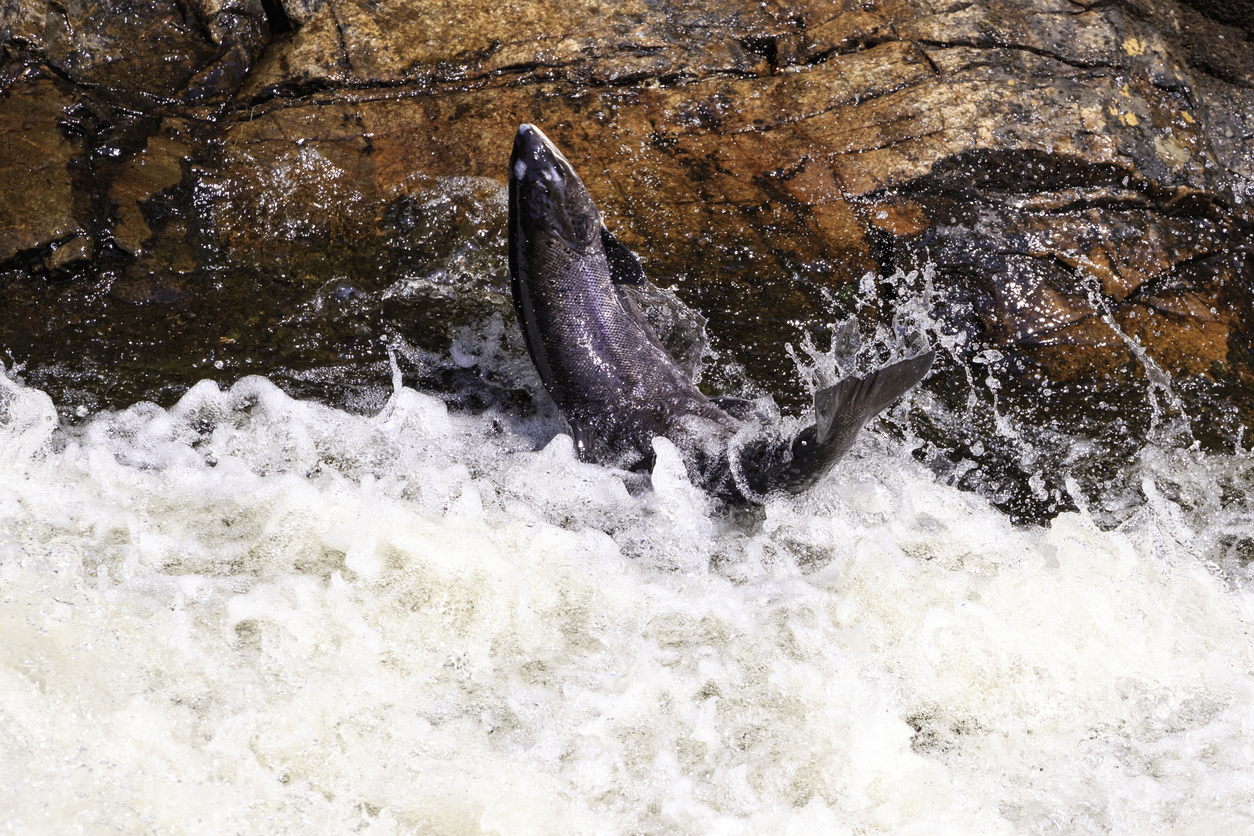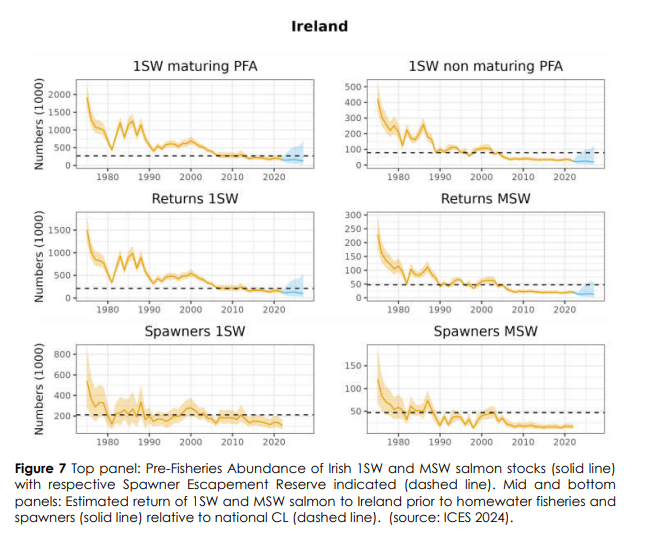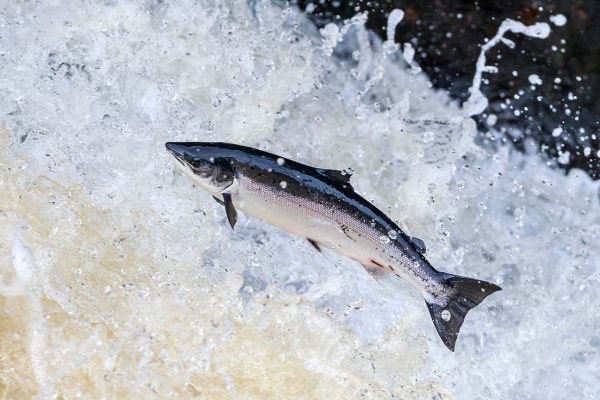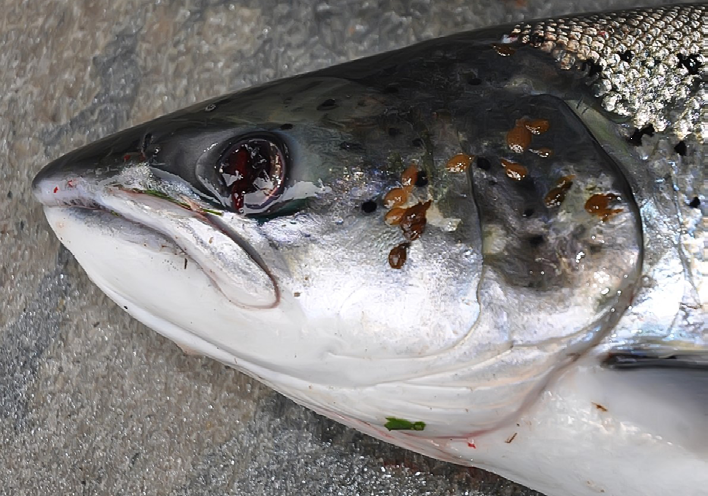Commercial and Recreational Exploitation
Commercial and recreational exploitation must be examined against the background of falling stock level. SWIRL supports the elimination of all commercial net fisheries, with appropriate compensation of those affected and the reduction of exploitation by all other means.
SWIRL fully supports the single stock management policy for salmon populations introduced after the ending of drift netting in 2007. The system has created a consistent process for managing exploitation of the available salmon stocks but there is now a need to review the parameters within which it operates.
If, as SWIRL proposes, the overarching objective is to maximise the number and quality of smolts going to sea then exploitation levels have to be kept under close scrutiny. This applies to both the recreational and commercial sector which in 2022 (Last Published figures 2022) caught approximately 26,000 salmon consisting of just over 4,000 fish harvested by commercial nets, 1o,000 salmon harvested by rods and 12,300 caught and released by the angling community. There would appear to be another significant fall in numbers in 2023 with a slight upturn in 2024.

More spawning stocks are required to offset higher mortality both in freshwater and at sea.
Commercial fisheries
There remain some seventy eight annually available licensed public nets catching approximately 7,000 salmon per annum in seven estuaries. There are also a number of private nets operating under a different legal regime. The overall catch is inclusive of the private netting sector. Fisheries only operate in estuaries which are deemed to have a surplus and operate under a quota system.
The economic viability and sustainability of this sector is certainly in question with falling quotas and reduced seasons all pointing to a situation where the commercial salmon sector must face the very real prospect of not being in a position to fish.
There is also very little prospect of commercial fisheries being reopened on currently closed or catch and release rivers unless there is a very substantial improvement in salmon stocks which appears now to be a very poor prospect given the ongoing decline of salmon in Ireland and on a global scale.
In light of declining stocks now is the time to examine the policy of issuing public netting licences or allowing commercial exploitation by private netting rights. SWIRL is supportive of the introduction of a scheme to alleviate hardship caused by a permanent closure of commercial fisheries which might involve the lease or buyout of netting rights.
SWIRL believes that government should signal its intent to discontinue the issuing of public netting licenses and give a date for the closure of public netting. The issue of private rights could be overcome by compulsory purchase order or lease. Both public and private interests should receive compensation to offset hardship.
Recreational fisheries
It is also obvious that the present situation in regard to the recreational exploitation of Atlantic salmon is not sustainable. The regime in Ireland where an angler is permitted to exploit ten salmon is very generous when compared with many other jurisdictions. There are some temporal constraints on anglers, but the amount of salmon permitted needs revision downwards.
Future policy should reflect modern conservation ethics and exploitation should be reduced. However mandatory catch and release management of rivers has had a negative effect on the protection of rivers. Economic and social concerns have also been raised as has the negative impact on angling club membership. The angling community has always been to the forefront of salmon conservation and these factors must be given due weight in designing further restrictions on exploitation.
While further restrictions on the exploitation by both the commercial and recreational stakeholders of Atlantic salmon are required now SWIRL is of the view that a review mechanism be introduced to examine if the reduction in exploitation could be reversed if salmon stocks recover substantially. Five years would appear to be the sensible period for review as it would cover a full life cycle.
Mixed stock fisheries
SWIRL is alert to the threat of the reintroduction of interceptory drift net fishing at sea due to political pressure. We can never accept the reintroduction of mixed stock drift netting for salmon and sea trout under any guise as it would totally undermine Ireland’s single stock management system. In this position SWIRL believes that it is fully supported by the terms of the Habitats Directive and the position taken up on the issue by the European Commission in 2005 which resulted in the ending of mixed stock fishing in 2007.
Conservation limits
Salmon Watch Ireland is supportive of the scientific approach to the management of our salmon fisheries and as such will never contemplate the exploitation of salmon in fisheries which do not have an identifiable surplus. However, there needs to be a substantial review of the process especially in rivers without installed fish counters where there is sometimes a surplus allocated that does not reflect physical evidence on the ground. Data needs to be improved both in catch and release rivers and on rivers where exploitation is allowed. More information is contained in our salmon and sea trout resource. Resource Center
The tagging system is open to abuse in both the commercial and recreational sectors and needs to be made more stringent with appropriate sanctions. SWIRL suggests that a licence should be revoked if a licensee contravenes the tagging regulations.






